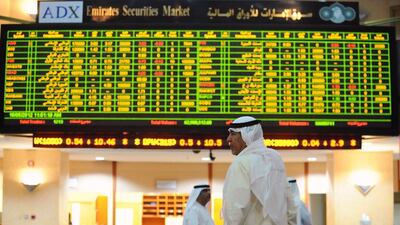The topic of sukuk standards is an important but sometimes divisive one in Islamic capital markets, and is a constant source of debate between the industry's many key stakeholders.
The GCC sukuk market remains fragmented; we have seen from the recent Dana Gas controversy that Sharia-compliance driven structural complexity can expose investors to legal risks that do not apply to conventional instruments, subduing global growth prospects and liquidity. The industry has struggled to harmonise, given the fractured nature of the Islamic capital markets, and the varying incentives of the stakeholders involved.
Most current market participants seek to replicate the risk, return and rating profile of the corresponding conventional instrument - most commonly a senior unsecured bond, which then drives legal complexity in the financing structure.
In all financing structures, complexity can be exploited during episodes of credit distress, this is not unique to Islamic finance, but in the current sukuk market there exists an inherent tension between the underlying equity and asset financing principles encouraged by Islam and the current investor/issuer demand for a debt-like instrument.
Often rated, all three international rating agencies (Moody’s, S&P and Fitch) assign [unsecured] sukuk ratings at the same level as the corresponding conventional instrument. But the agencies typically cannot rate a structure where subjective Sharia non-compliance [risk] could have credit loss implications.
So, who are the main stakeholders in Islamic markets? They include the following:
Sukuk investors - the most important. It is ultimately those with the "money", who decide the success or failure of any market - including sukuk
Islamic retail banks and customers - retail banking customers have helped create a vibrant $1.5tn banking sector who are also key Sukuk Issuers and investors.
Sovereigns – a critical issuance anchor with the lower oil prices, the recent price recovery may subdue future volumes.
Corporates - limited issuance to date due to robust bank lending but with high potential given the more challenging regional economic environment.
Service Providers - For these parties (such as lawyers, fatwa providers, bankers) standardisation is a mixed blessing – possibly lower fees but higher volumes.
Regulators/policymakers – across the GCC they have proven much more effective in driving growth than the private sector can achieve alone. Regulators also need to ensure a holistic view and have clear goals before setting policy – these goals can even conflict if not managed carefully.
National Sharia boards (NSB) - are key for market confidence, improving market liquidity and reducing costs for issuers and investors. Their endorsement of market standards would support transparent and healthy growth. In general, an NSB would preclude Sharia non-compliance being a successful rationale for sukuk non-payment.
_____________
Read more:
Global sukuk issuance to drop as much as 28% in 2018
Saudi Arabia re-taps 10bn riyal October domestic sukuk issue
_____________
All opinions and needs should be considered by regulators when proposing standards. But we at Acreditus suggest that the goal should be primarily satisfying the needs of the main actors – who we would propose are the sukuk issuers and investors. For these two groups, reduced cost, time and uncertainty for sukuk issuance are important, along with a broader and deeper market that supports more trading, liquidity and efficient pricing. We believe standards support these goals.
Standardisation also has a variety of benefits for investors; but one of the greatest is enhanced market depth and liquidity. Standards would reduce the time and resources needed for newcomers and smaller investors to assess the risk of such investments and hence increase the number of participants – boosting trading and investment. Standards across the different jurisdictions (a desirable but at this point still unrealistic ideal) would allow greater capital flows and investment opportunities between the active countries, creating a much larger market and attracting more investors and issuers to the sukuk market – kick-starting a virtuous circle.
Other benefits of standardisation to investors are is reduced legal uncertainty, as they can be more confident that they are not investing in a "non-compliant" instrument within that particular jurisdiction – the legal risk of any challenge is therefore materially reduced.
If implemented, standards would reduce the costs for investors and issuers. Issuers can re-use already endorsed market structures saving costs and hence encouraging them to issue more.
Nothing stops transactions outside the standards, but one can be assured that regulator-endorsed structures with their lower costs and better legal certainty will find favour with investors who will decide the shape of the market with their money.
Any new rules should benefit the industry as a whole and not (we propose) any particular set of agents. Indeed, the regulator needs to be clear what its goals are before embarking on such an endeavour as bad regulation can be worse than none.
In all market related activities, the best way to move forward is to empower investors through transparency, governance and education – having standards supports all three of these objectives that are important to build a growing sukuk market that all investors can have confidence in.
Khalid Ferdous Howladar is the managing director and founder of Acreditus – a boutique risk, ratings and Islamic finance advisory that is a member of the Gulf Bond and Sukuk Association (GBSA).

